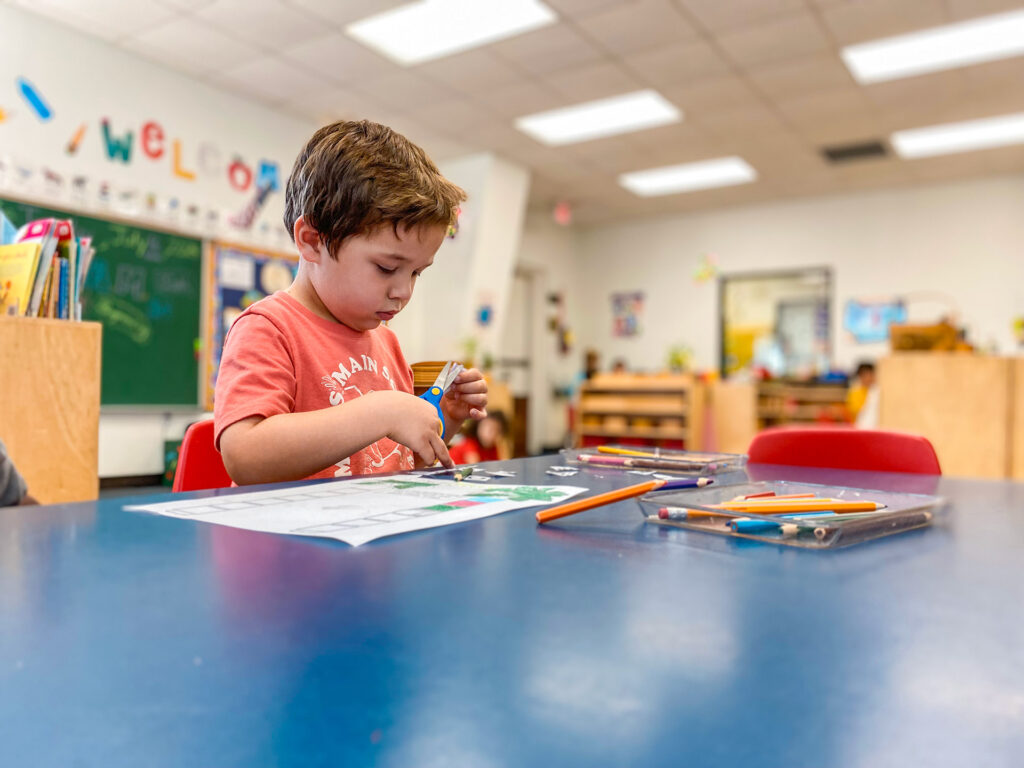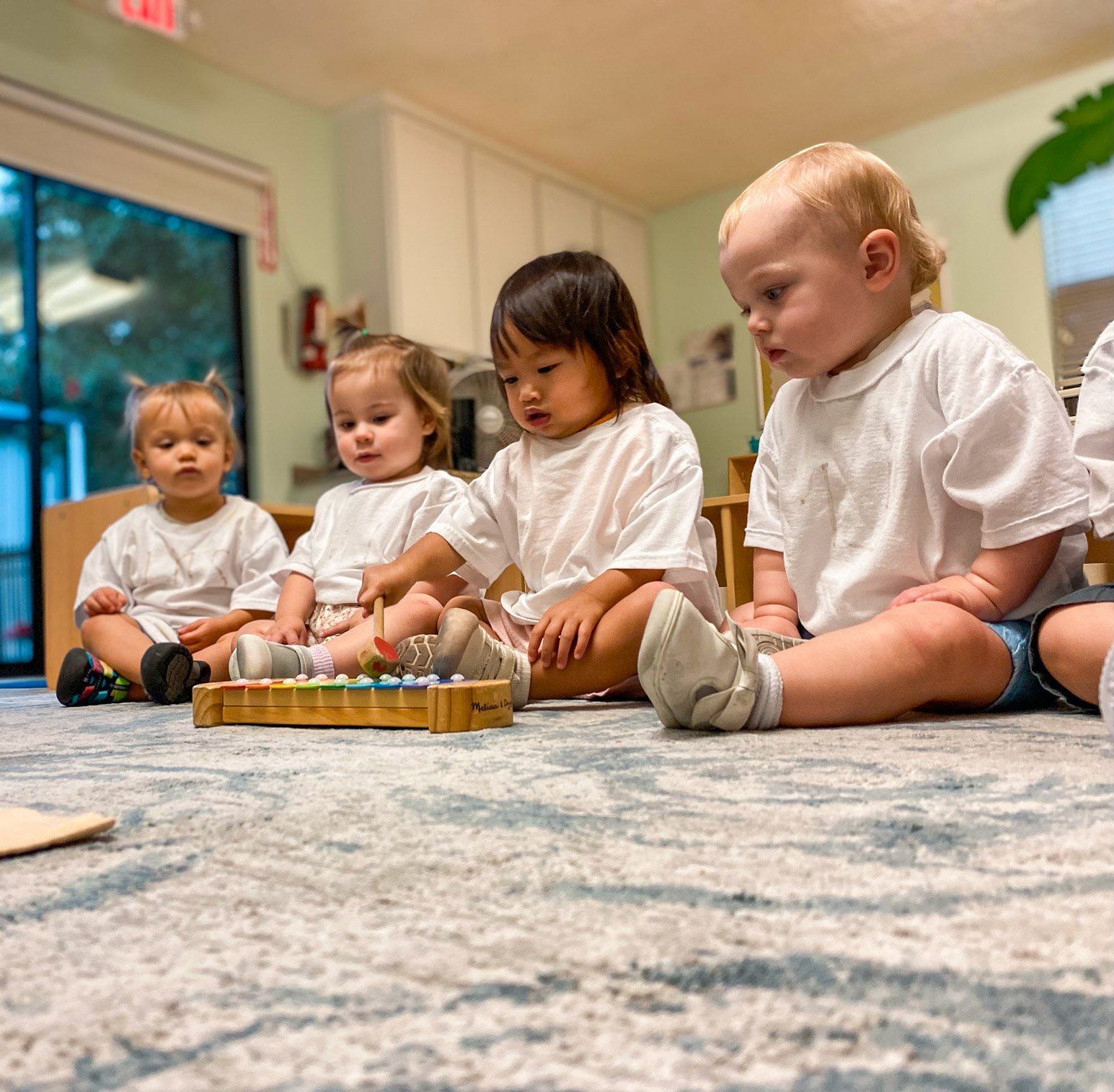Have you ever wondered why toddlers seem to learn new things effortlessly? One minute, they're babbling. The next, they're calling you "Mama" or "Dada." This incredible capacity for learning is thanks to what Dr. Maria Montessori called the "absorbent mind."
In this blog post, we'll explore the concept of the absorbent mind, a cornerstone of Montessori education. We'll discuss the unique learning window between 0 and 6 years old and how Montessori principles can nurture your child's natural curiosity and love of learning.
The Absorbent Mind Explained
Dr. Montessori believed that children from birth to around 6 years old possess a superpower to absorb new things at a faster pace. During these years, children unconsciously absorb information from their environment like sponges. They learn language, social cues, and cultural norms simply by being immersed in their surroundings.
Hence, young children can pick up new languages easily or mimic their parents' behaviors. Unlike adults who learn through conscious effort, children in this stage learn effortlessly and retain information for a long time.

Benefits of the Absorbent Mind
The absorbent mind is a powerful tool for early learning. Here are some of its benefits:
- Faster Language Acquisition: Children are naturally wired to learn language during this period. Hearing adults speak, they can effortlessly absorb vocabulary, grammar, and sentence structure.
- Enhanced Sensory Development: Children are highly attuned to their senses during this stage. Learning around this period helps them refine their senses of touch, taste, smell, sight, and hearing, forming the foundation for future learning.
- Stronger Social Development: Children learn social skills by observing and interacting with others. Early education allows them to pick up on social cues, emotions, and appropriate behavior within their environment.
Montessori and the Absorbent Mind
Montessori classrooms are specifically designed to cater to the absorbent mind. Some key features support this unique learning style:
- Prepared Environment: Montessori classrooms are meticulously prepared with age-appropriate materials that encourage exploration and discovery. The prepared environment is the foundation of Montessori education, allowing children to learn independently and at their own pace.
- Sensorial Activities: Montessori emphasizes activities that engage all five senses. Through sensory play, children refine their senses and gain a deeper understanding of the world around them.
- Hands-on Learning: Children learn best by doing. Montessori activities are meant to be hands-on and engaging, allowing children to actively participate in their learning process.
Nurturing Your Child's Absorbent Mind
You can nurture your child's absorbent mind at home by creating a rich and stimulating environment. Here are some tips:
- Talk and Read to Your Child: Engage in everyday conversations and read books together regularly. Hearing words repetitively exposes your child to new vocabulary and fosters language development.
- Provide Open-Ended Materials: Offer your child toys and materials that encourage exploration and creativity. Blocks, puzzles, and natural objects like pinecones and shells are great options.
- Let Your Child Explore: Allow your child to explore their surroundings safely. Let them touch, taste, and smell different objects under your supervision.
- Minimize Screen Time: Excessive screen time can hinder your child's natural exploration and learning. Prioritize hands-on experiences and limit screen time.
By understanding early education and incorporating Montessori principles at home, you can support your child's natural curiosity and set them on a path of lifelong learning. These years are very important for a child and it can be a huge advantage for them to learn things at this age that can then set them for things later on in life.
Learn More About Early Education!
Want to learn more about how Montessori education can nurture your child's absorbent mind? Check out our blog post about "The 5 Core Components of Montessori Education" or schedule a visit to our school to see our Montessori classrooms in action!

